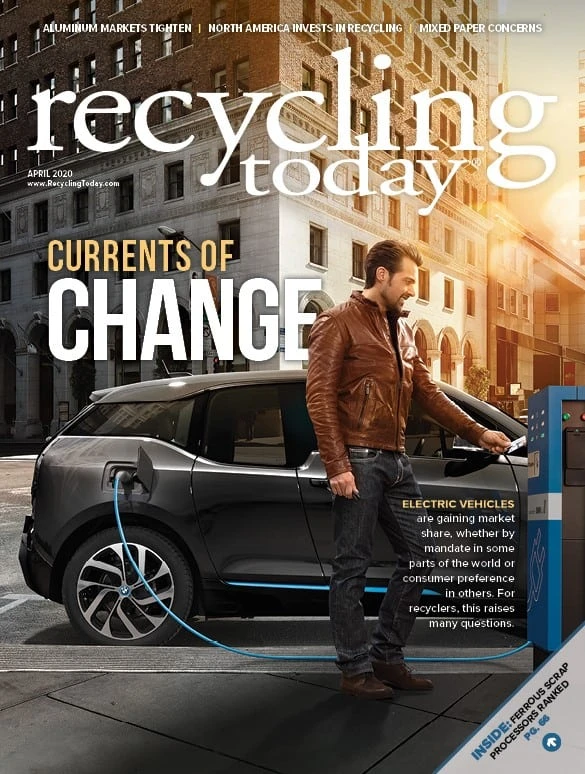A plastics reprocessor based in the Southeast says the market for recycled natural high-density polyethylene (HDPE) has “changed dramatically in the last five to six months.” He attributes this to growing demand from consumer packaged goods (CPG) companies.
“Natural [HDPE] is moving very briskly,” he adds. In fact, his company is adding production capacity to keep up with demand, transitioning one of its mixed-color lines to natural production. That move will give the reprocessor four machines dedicated to natural HDPE production and an additional 30 million more pounds of capacity, he says.
The market for reprocessed mixed-color HDPE is weak by comparison and trading at a discount to virgin material, while natural HDPE is commanding “a big premium,” the reprocessor says. He adds that the premium had softened somewhat as of mid-March.
Bales of natural HDPE increased from 20 cents per pound to 60 cents per pound over a six-week period, the reprocessor says. He adds that this pricing is “not sustainable.”
“Properly sorted and graded material is in short supply.” – a plastics reprocessor based in the Southeast
He adds, “Materials that are selling at virgin minus are struggling.” The same applies to non-Food and Drug Administration-approved polypropylene (PP), while FDA-approved PP is selling at a premium to virgin PP, which is oversupplied and continues to decline in pricing.
Recycled PP that has received FDA approval, however, is enjoying good demand and pricing, the reprocessor says.
His company is able to secure the supply of bales it needs, though the reprocessor says it has been a “fight.” That has been helped a bit by the exit of outdoor furniture makers that have shifted from using recycled natural HDPE in their production to wide-spec virgin material, which is selling at a discount compared with reprocessed material.

His company has been able to purchase “a lot of PP at a good rate,” the reprocessor says.” However, he adds. “Properly sorted and graded material is in short supply.”
To meet its demands, his company has been buying from throughout the contiguous United States. In 2020, it will produce 30 million pounds of recycled PP, which is approximately a six-fold increase from the 4 million to 5 million pounds it produced last year.
Outside the U.S., Steve Wong, the CEO of Hong Kong-based Fukutomi Recycling Ltd., says some Chinese factories have slowly resumed production as of mid-March following weeks of lockdowns to prevent the spread of the novel coronavirus, COVID-19. “Nevertheless, factory operation efficiency is still far from a desirable level in the absence of a full workforce to engage in regular production activities,” he writes in his March market update email.
Logistics support also is lacking in the country, he says.
“Lately, the decrease in oil prices, which fell more than 20 percent overnight, is one of the worst ripple effects seen by the plastic scrap market,” Wong writes. “While most of the recyclers have been in a dire liquidity situation due to very slow-moving inventories arising from effects of the coronavirus, a buy-cheap-tomorrow sentiment is now looming in the market and has deterred buying interest all around.”

Explore the April 2020 Issue
Check out more from this issue and find your next story to read.
Latest from Recycling Today
- Aqua Metals secures $1.5M loan, reports operational strides
- AF&PA urges veto of NY bill
- Aluminum Association includes recycling among 2025 policy priorities
- AISI applauds waterways spending bill
- Lux Research questions hydrogen’s transportation role
- Sonoco selling thermoformed, flexible packaging business to Toppan for $1.8B
- ReMA offers Superfund informational reports
- Hyster-Yale commits to US production





